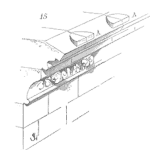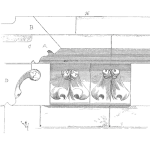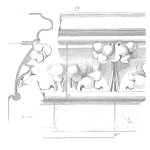
In manufacturing, variation is the enemy of quality. Left unchecked, it erodes reliability, increases waste, and drives up costs. One of the simplest but most effective tools for controlling variation is Layered Process Auditing (LPA).
[Read more…]Your Reliability Engineering Professional Development Site
Find all articles across all article series listed in reverse chronological order.
by Ray Harkins Leave a Comment

In manufacturing, variation is the enemy of quality. Left unchecked, it erodes reliability, increases waste, and drives up costs. One of the simplest but most effective tools for controlling variation is Layered Process Auditing (LPA).
[Read more…]by Mike Sondalini Leave a Comment

High equipment reliability is a choice and not an accident of fortune. To a great extent you can choose how long you want between equipment failures. You can deliver high equipment reliability by ensuring the chance of incidents that cause failures of equipment parts are low. The secret to remarkably long and trouble-free equipment lives is to keep parts and components at low stress, within good local environmental conditions, so there is little risk they are unable to handle their design duty. If there is nothing to cause a failure, the failure will not happen and your equipment continues in service at full capacity and full availability.
For maintenance practitioners, it is the use of precision maintenance backed-up with condition monitoring applied as a tool to prove maintenance work is done precisely, that provides the foundation for exceptional equipment reliability.
[Read more…]by Greg Hutchins Leave a Comment

Recently the International Organization for Standardization (ISO) released the 2021 certification numbers. Oxebridge Quality Resources did a good analysis of the 9001 numbers. This piece looks at the results from all the certifications and provides comparison in key certifications between China and the United States.
In October 2021 I discussed the results of the 2020 certifications numbers. (1) Until last year, ISO certification numbers for the dominate certification 9001 were on a downward trend. In 2020 the number of 9001 certifications increased. The increase was due to two primary factors. One was organizations which had not previously reported certifications reported them. The second was the growth in Chinese certifications.
[Read more…]by James Reyes-Picknell Leave a Comment

Our Rapid Reliability Assessment is designed for small or budget constrained operations. Consulting engagements with the big firms are expensive and out of the question. This is for smaller operations that need something that is not overly intrusive, not expensive, and gives them big bang for their buck.
[Read more…]by Larry George Leave a Comment

Ongoing Reliability Testing (ORT) is a way to estimate reliability function, as a function of independent variables, primarily age. This is because reliability is “the probability of successful function to specified ages under specified conditions” [O’Connor et al.].
Think of planning ORT as a design of an experiment (DoE). A DoE objective is to quantify effects of factors (independent variables) on the dependent variable, the reliability function. (The reliability and failure rate functions contain the same information, because reliability = P[Life > t] = exp[–∫a(u)du], where a(u) denotes the failure rate function and the integral runs from 0 to t.)
[Read more…]by Nancy Regan Leave a Comment

In this video, we dive into the significance of operating context when identifying proactive maintenance tasks for your equipment. Have you ever considered how the operating environment impacts maintenance strategies? Using the example of our metal building, we explore how factors like temperature and operational conditions can drastically affect maintenance tasks and intervals. 🔍 Discover how we determine the operating environment in Reliability Centered Maintenance (RCM) analysis, including:
We also discuss how operating context influences not only maintenance strategies but also other important failure management strategies, such as emergency procedures and equipment redesigns.
[Read more…]by Hemant Urdhwareshe Leave a Comment

Dear friends, we are happy to release this video on Process Capability. this is our 93rd video! In this video, Hemant Urdhwareshe, Fellow of ASQ, explains the basic concepts of process capability indices Cp and Cpk with an illustrative example. Hemant has also explained how to validate whether the data is normally distributed with histogram and normal probability plotting. Hemant has further explained the interpretation of the results of study and suggested improvement actions.
[Read more…]by George Williams Leave a Comment

Building a strong, unified team takes more than just hiring the right people; it takes leadership, accountability, and a shared vision.
In this video, George Williams, Founder & CEO of Reliability X, breaks down what it takes to bring a team together and keep them moving toward the same goals. From setting the example as a leader to coaching team members toward success, these insights will help you create a workplace where people collaborate, support one another, and grow together.
You’ll learn:
If you’re ready to build a team that truly works together, watch now and start making tomorrow better than today.
[Read more…]by Christopher Jackson 2 Comments

If you Google ‘fault tree analysis’ (which I know you probably haven’t), you’ll get a horrible definition that goes something like …
… a fault tree is a deductive failure analysis tool that uses Boolean logic to combine a series of lower-level events to understand the probability of a top-level system failure …
This is technically correct. Unfortunately, definitions like this don’t really help anyone. They make fault tree analysis or ‘FTA’ sound like some abstract math exercise, when in practice, fault trees are one of the most practical and human-friendly tools we have to help solve a huge range of engineering and manufacturing problems. At their core, fault trees are a way of collecting our thoughts, visualizing brainstorming sessions, and structuring messy ideas in a way that helps us make sense of what starts out as being hugely complex problems.
[Read more…]by Fred Schenkelberg Leave a Comment

Some years ago a few colleagues compared notes on results of a Weibull analysis. Interesting we all started with the same data and got different results.
After a recent article on the many ways to accomplish data analysis, Larry mentioned that all one needs is shipments and returns to perform field data analysis.
This got me thinking: What are our common methods and sets of results when we perform life data analysis? [Read more…]
by Semion Gengrinovich Leave a Comment

The duty cycle of a fuel cell engine, particularly in the context of acceleration and deceleration of a vehicle, is a critical aspect that influences the performance, efficiency, and longevity of the fuel cell system. Understanding the effects of these dynamic conditions on fuel cell engines is essential for optimizing their operation and addressing potential challenges.
[Read more…]by Greg Hutchins Leave a Comment

Project documentation; the bane of some people’s lives, for other’s their raison d’être. Documentation is essential and its written word can ensure effective communication so there is as little misunderstanding as possible. Requirements will be definitive, obligations and liabilities will be unambiguous, and instructions will be clear.
Projects typically require plans and processes as well as details of products and services and methodologies for contemporaneous purposes. They contribute to corporate knowledge, assist with learning lessons and may defend any liability. Documents are usually subject to some form of acceptance, approval, non-objection or similar.
[Read more…]by Mike Sondalini Leave a Comment

Improved reliability has a cause. Just like a failure has a cause, so too is there a cause for improved reliability. You can wait for a failure to happen and then learn from the experience and change your processes to prevent it. That is root cause failure analysis. But it is not proactive behaviour. Such an approach quickly buries you in firefighting. It helps you fix a few terrible failures, but not the tens of thousands of defects that are waiting to create the next lot of disasters. Permanent reliability growth requires proactive methodologies that identify all potential problems and stops them from starting. This is what is done in high reliability operations – they never allow defects to begin.
The process maps of your business processes, the workflow diagrams of your operating procedures and the bills of materials for your equipment are the foundation documents for improving equipment reliability. They are used respectively to control the business processes, to control human error and to address limitations in materials of construction and parts’ health practices.
[Read more…]by Hemant Urdhwareshe Leave a Comment

Dear friends, this is a quick overview of the Design for Relliability (DFR) strategy.
For details of the tools and techniques shown in the video, we are providing links to our videos Links to some related videos:
[Read more…]by Nancy Regan Leave a Comment

True or False? Reliability Centered Maintenance (RCM) produces more than just a Proactive Maintenance Plan. In this short video, we explore the broader benefits of RCM! Discover how a Facilitated Working Group approach empowers equipment experts to identify vulnerabilities, known as Failure Modes, and develop effective solutions that go beyond traditional maintenance strategies. From new operating procedures to equipment redesigns, RCM can drive meaningful improvements across your organization.
[Read more…]